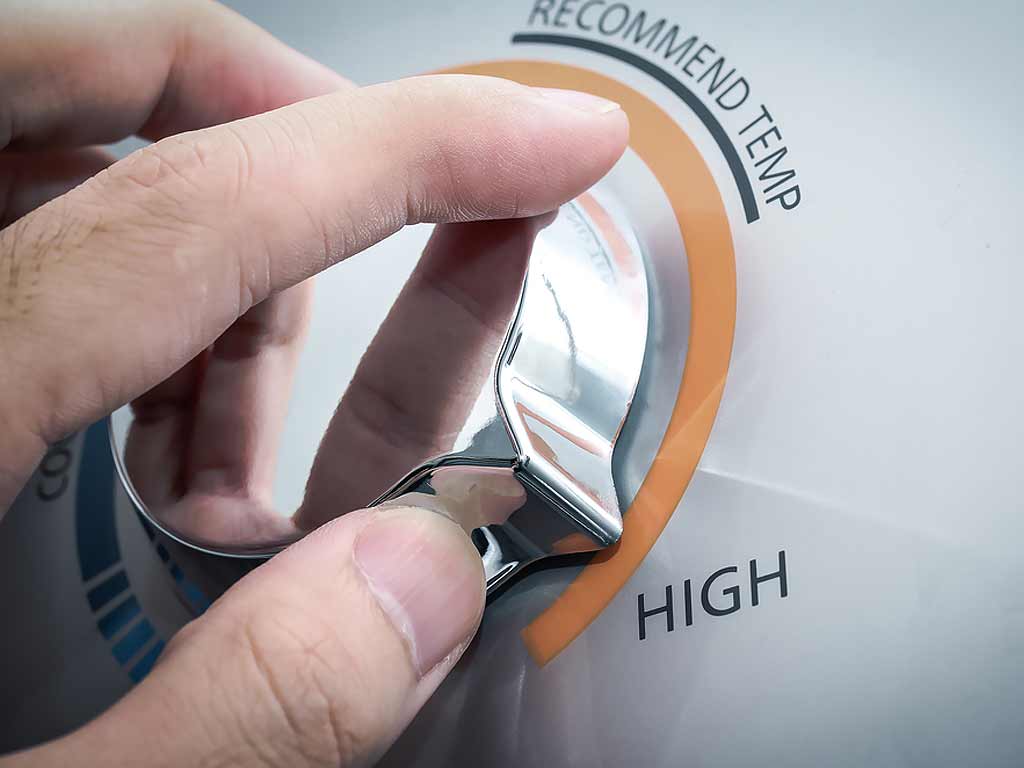As a homeowner, you’re interested in ways to decrease your monthly energy use so you can save money on your utility bills. You may not realize that your water heater comes in a solid second place when it comes to energy consumption, second only to your HVAC system. One way to go green is to install a energy-efficient residential water heater in your home. If you’re not ready to invest in an upgrade, there are some simple ways that you can reduce your utility bills.

Water Heater Types
There are two basic types of residential water heaters, those with a holding tank and tankless models. If you own an older home, you likely have a tank water heater located somewhere in the basement or closet. Water is heated and held a tank until it’s ready to use. These types of water heaters sometimes use gas as a fuel, and other times use electricity. The biggest drawback is that the supply of hot water is limited to the size of the tank and the wait time for a fully heated tank can be hours.
With a tankless, or on-demand, hot water heater the water is heated when it is needed at any faucet in the house. In some cases, they only serve one faucet, such as in a kitchen or bathroom. This results in a nearly endless supply of hot water. Because there’s no holding tank for the water, the water heater takes up minimal space. Tankless heaters are gas-fired and only use a tiny amount of electricity to operate the control panel.
What’s the Best Type of Water Heater?
The answer to that question really does depend upon several factors. If you’re considering a water heater upgrade, ask yourself the following questions to determine which water heater would work best.
- What’s your budget? A tankless water heater is going to cost more upfront than a standard water heater with a tank.
- What’s your goal? Consider what’s most important, whether it’s solving an immediate problem, long-term energy savings, or building value into your home.
- What’s your energy source? If your current water heater is powered by electricity, you’ll need to have new gas lines run if you switch to a gas heater. That means additional installation expenses.
- What are your hot water demands? Tankless hot water heaters do produce endless hot water, to a point. If your household has a heavy demand, multiple tankless, or a larger tank heater might be best.
- How much space do you have? Water heater tanks are notorious for wasting valuable storage space. If you’re living in cramped quarters, a tankless water heater might be the more appealing option.
Go Green Without a New Water Heater
If you’re not ready to invest in a new water heater right this moment, there are some ways that you can help your current water heater work more efficiently. In turn, it will use less energy and work more efficiently.
- Adjust your water heater temperature – If you’ve never set the temperature on your water heater, it’s likely still on the manufacturer’s default setting of 140℉. Adjust the temperature to 120℉ or lower. This simple act will reduce your hot water related energy costs by 6 to 10 percent.
- Wrap an older water heater – Hot water heater tanks are terribly inefficient, but you can boost it by wrapping it in an insulation jacket. For less than $20, you can reduce the amount of energy your water heater uses by as much as 45 percent for the year.
- Install a timer on your water heater – It doesn’t make a whole lot of sense to keep water hot when no one will be using it. A timer that shuts the water heater off during off-hours like at night, or when you’re at work for the day and back on during peak hours reduces wasted energy.
A constant flow of hot water is essential to the comfort, happiness, and well-being of your family. A huge energy bill every month because of an old, inefficient water heater isn’t good for your pocketbook though. If you want to learn more about how to go green with your water heater, contact Aladdin Plumbing. We’ll be happy to answer any questions you have and help you decide and install your next residential water heater.
